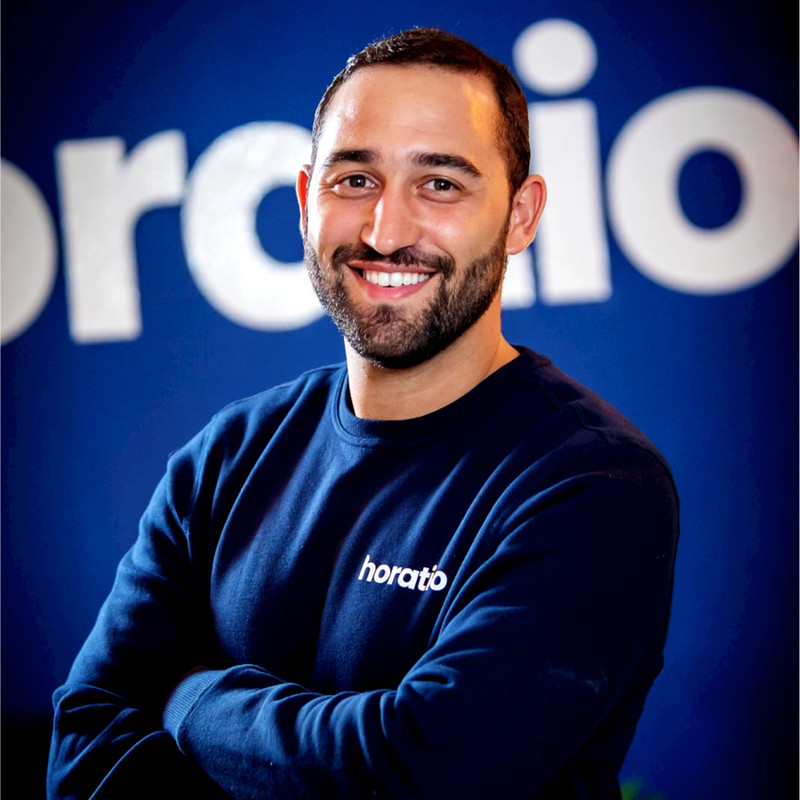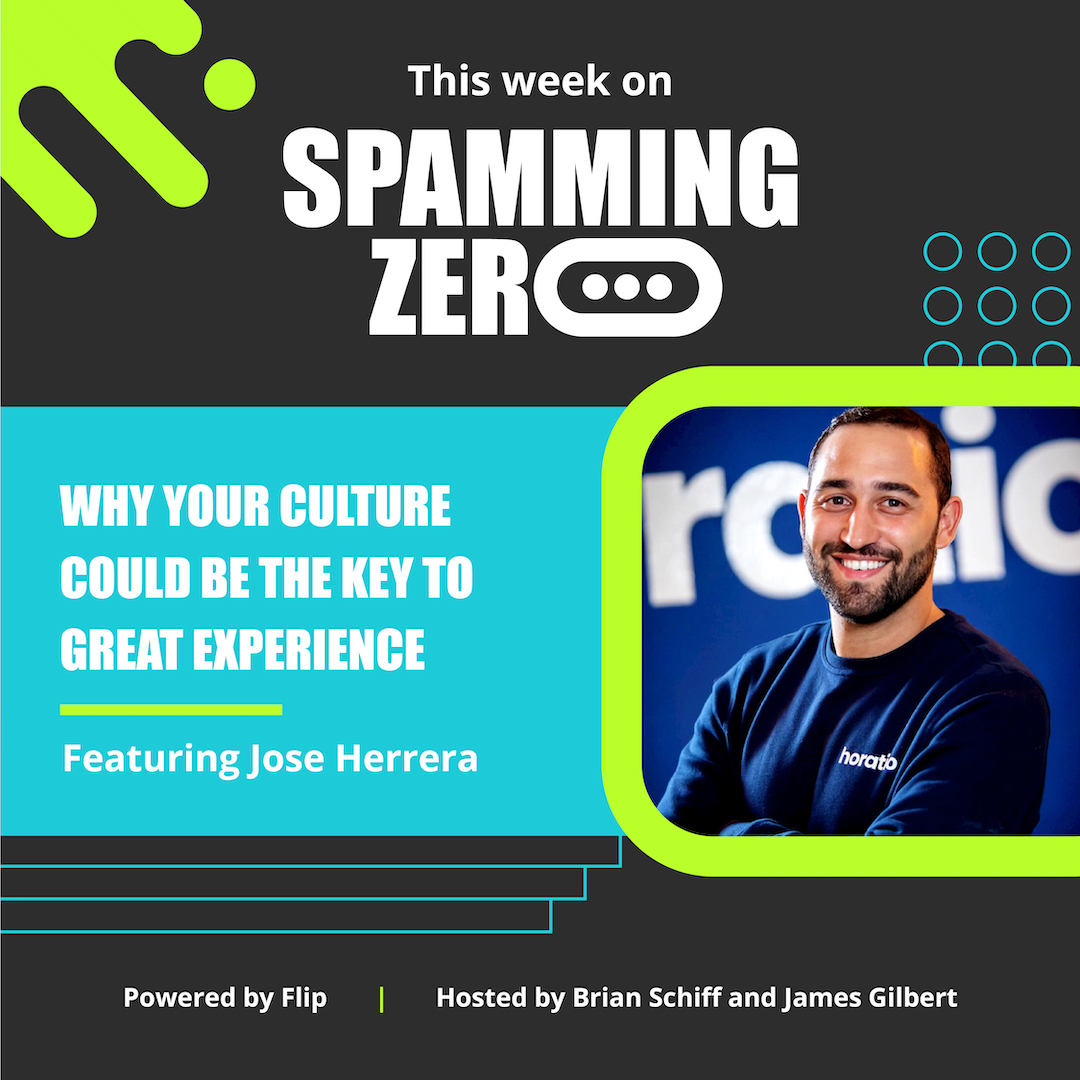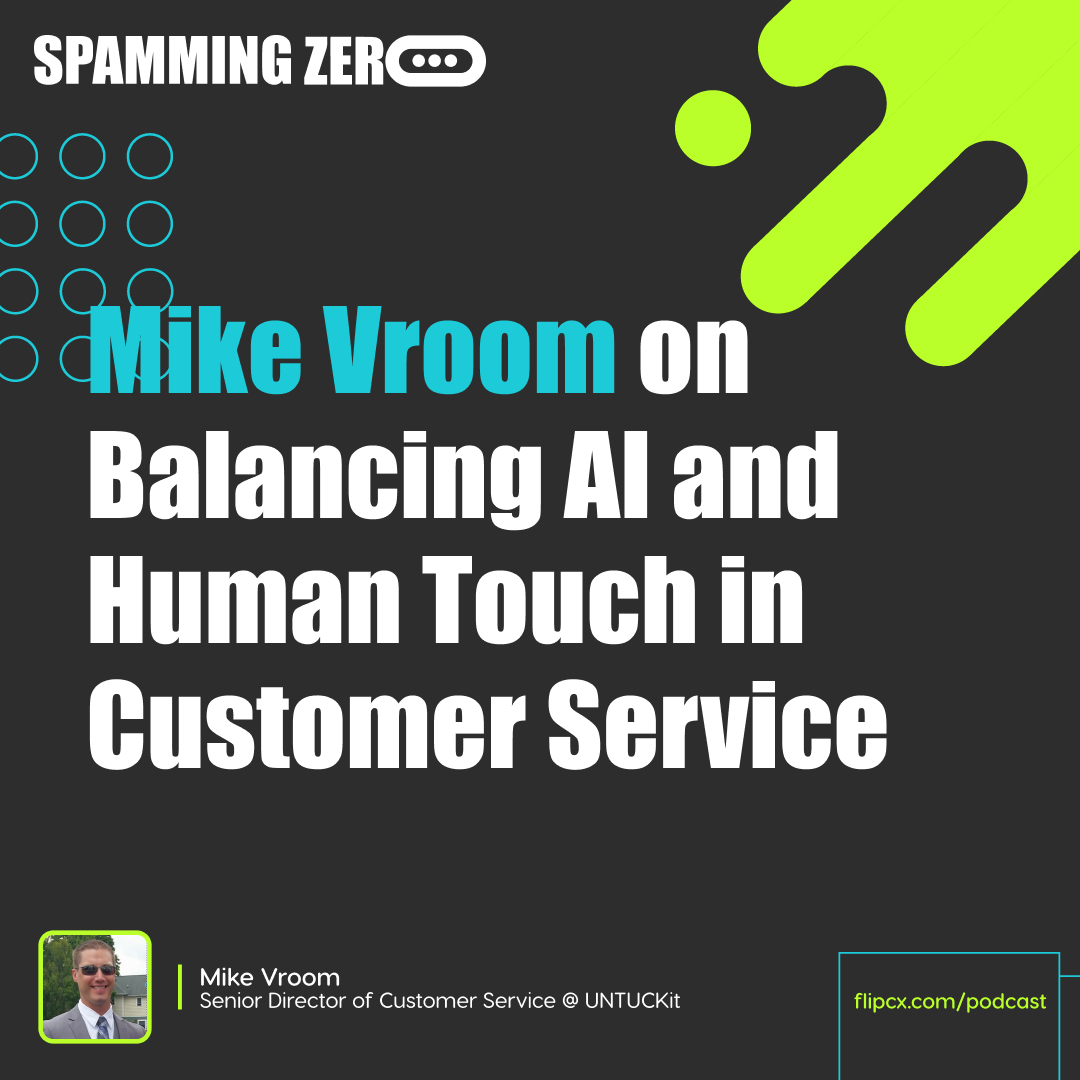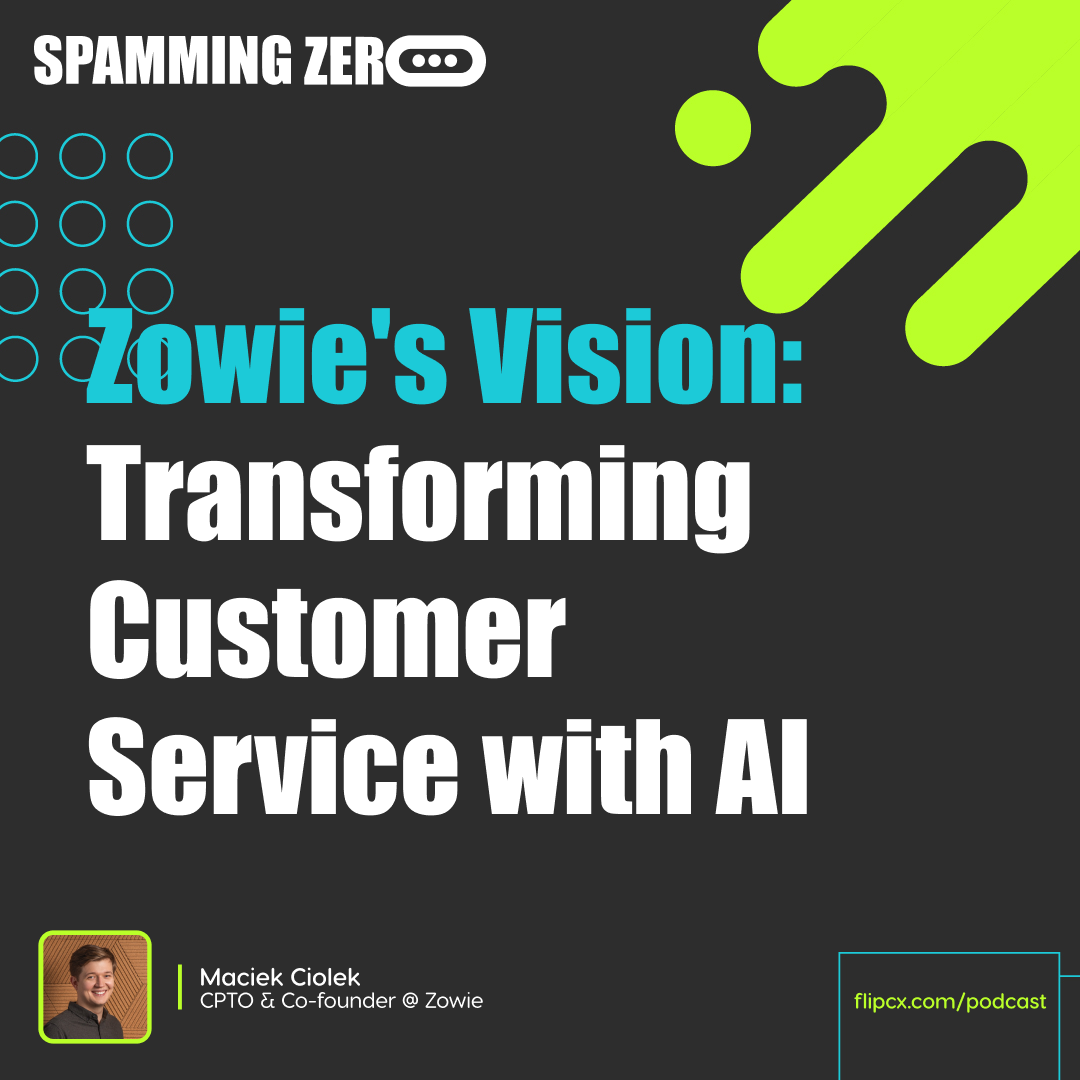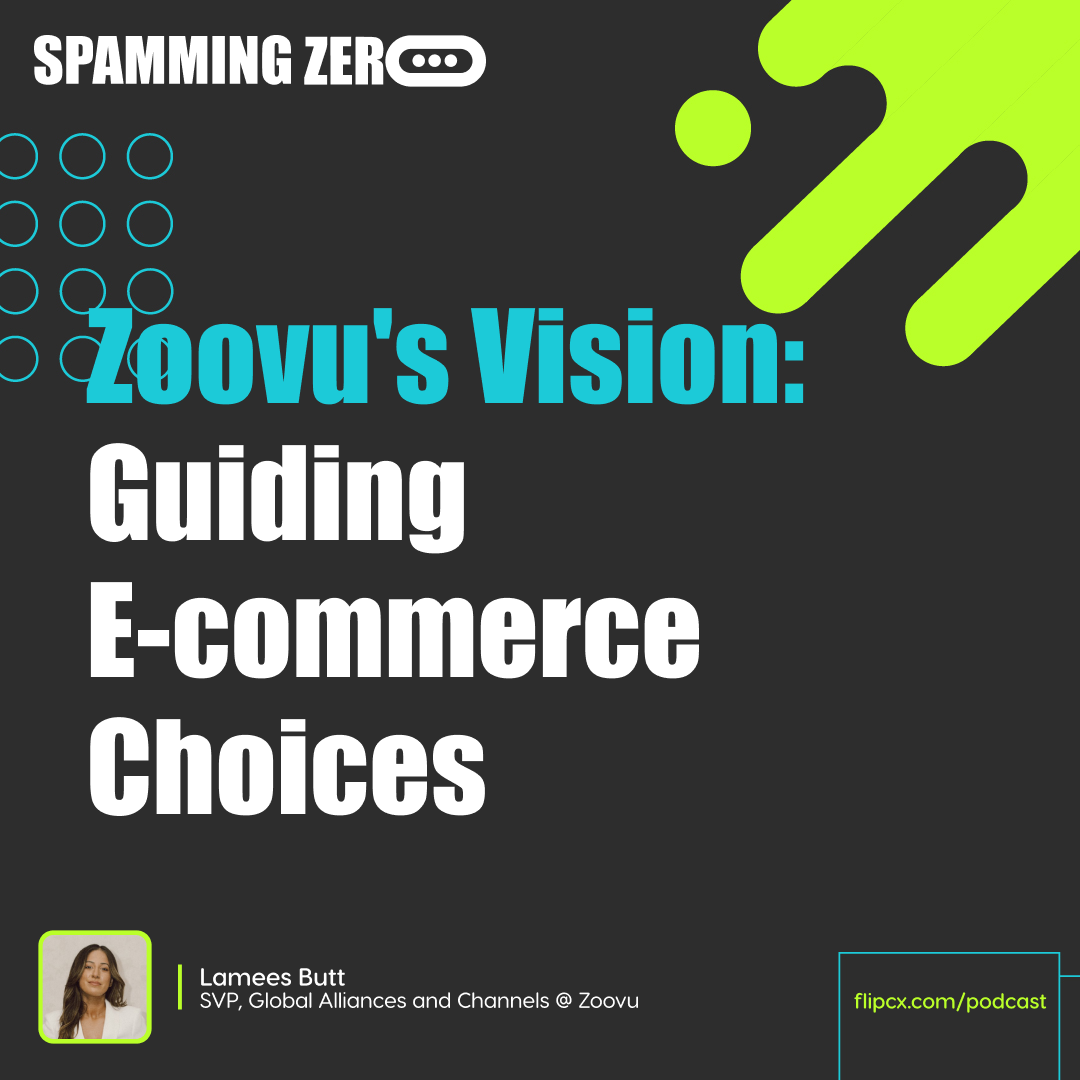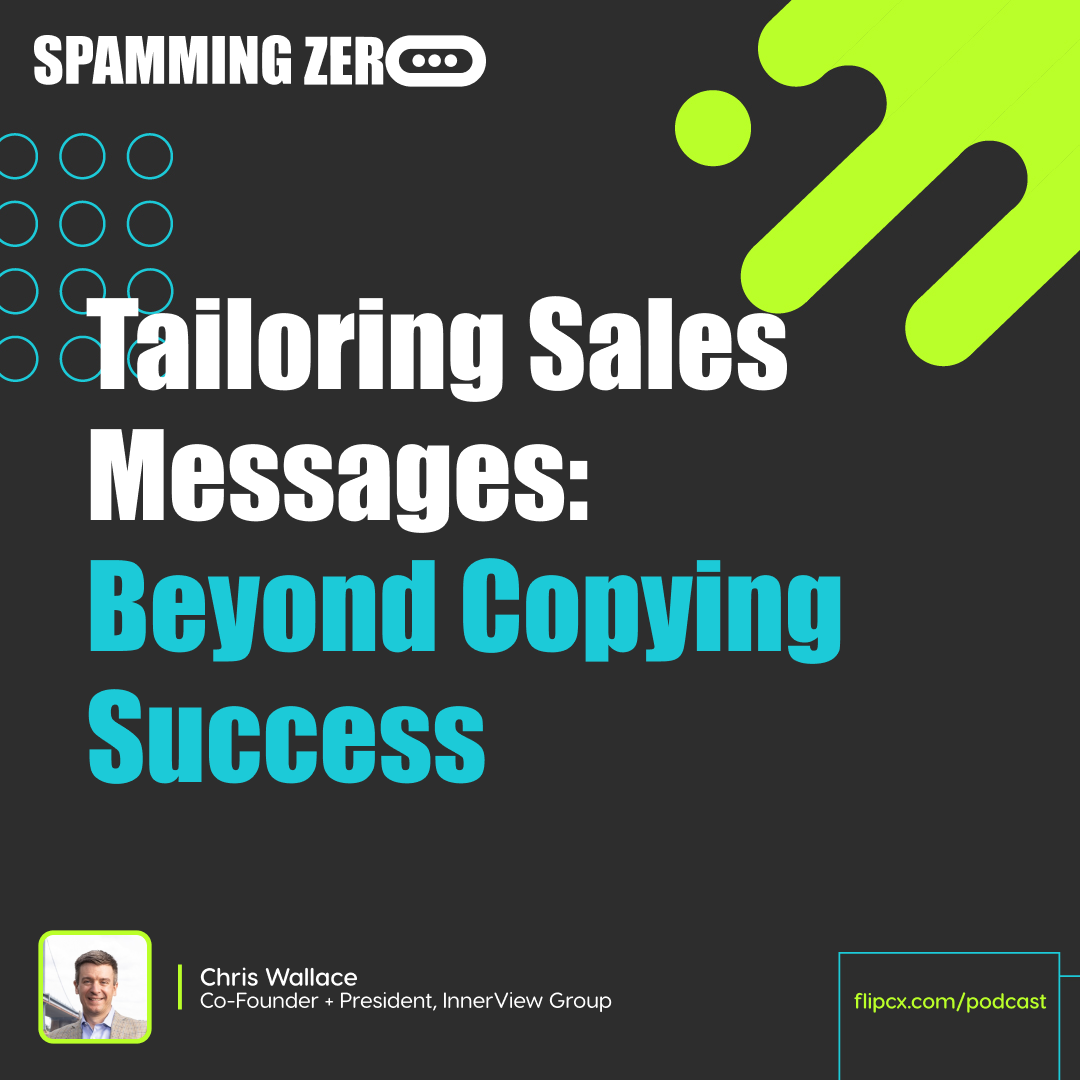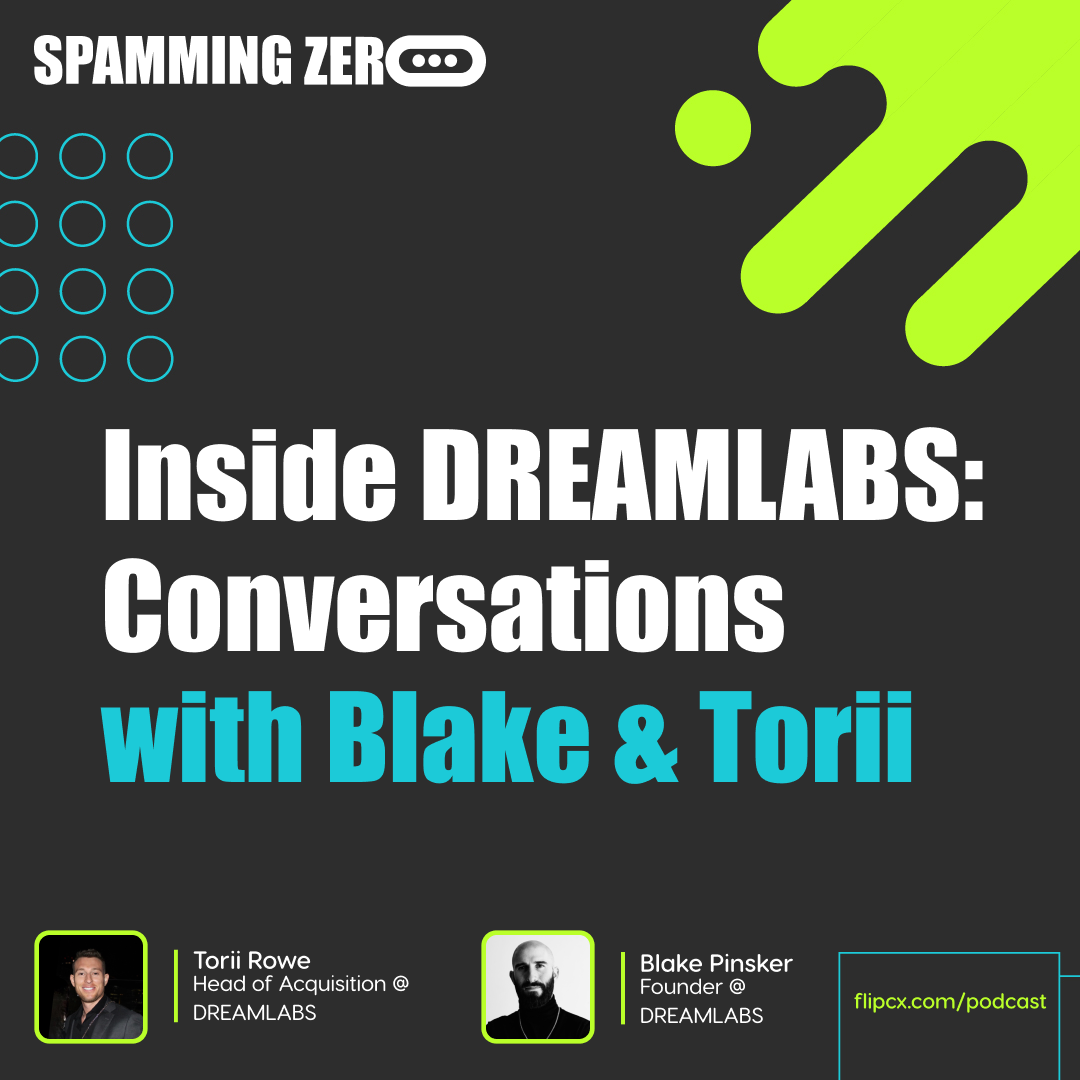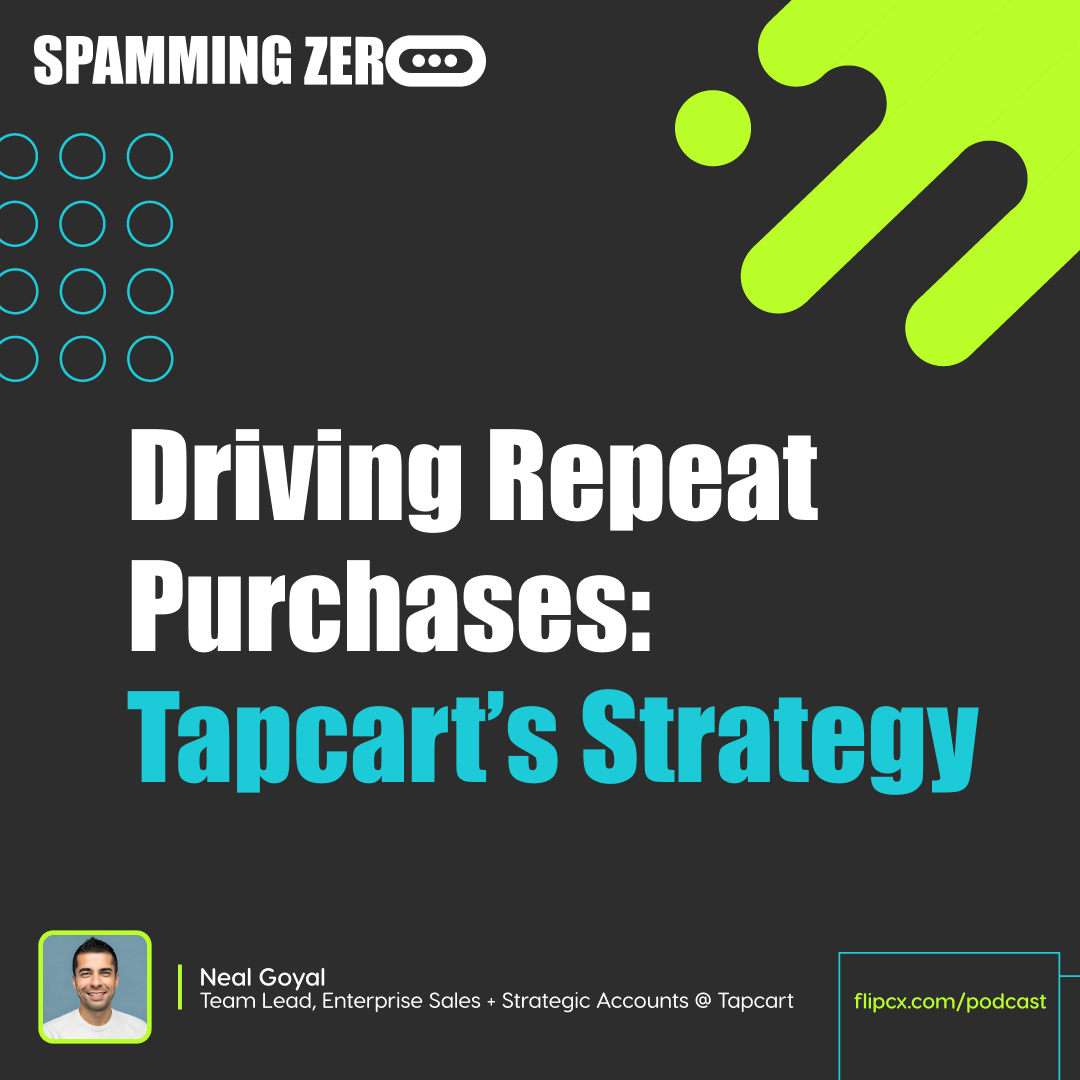Episode 7: Hire Horatio's Jose Herrera On Why Your Culture Could Be THE Key To Great Experience
- 0.5
- 1
- 1.25
- 1.5
- 1.75
- 2
James Gilbert: Welcome to another episode of Spamming Zero. I am one of your hosts, James Gilbert. Today, we are joined by the CEO of Hire Horatio. When you reach out to a brand and get a lovely person on the other side, that's Hire Horatio. It's a next generation tech enabled customer experience outsourcing platform, and today we're going to be talking about why your culture could be the biggest factor to a great experience. So excited about this episode, stay tuned. I'm James.
Brian: And I'm Brian.
James Gilbert: And this is Spamming Zero.
Brian: Jose, so great to have you on the show, my friend. Good to see you again. How you doing?
Jose : Hey Brian, it's great to be here today.
Brian: Kicking us off here. So you are the definition of boots on the ground, right? You are talking to the people every day that are talking to the customers every day. What is the best or a recent good story that comes to mind that you've heard from the frontline? Something positive from one of your reps that they showed up and they were glowing, smiling ear to ear, what was it?
Jose : I hear a lot of interesting stories. Some good, some bad. Because we are the first line of defense to some of the brands that we service, we spend a lot of time training our team to make sure that they are providing that five star hotel experience, no matter what type of interaction they're facing. And what brings me joy is every time that I hear one of my team members express how they were able to turn around a really bad situation. So, recently, for one of their direct to consumer brands, we had an issue with a particular product that the client had purchased, and it was a very bad and negative experience. The agent was able to actually find a very creative way to keep the customer engaged, to try another product from the brand that we service, and the customer left satisfied after that interaction. So that's some of the things that we instill in our team members is to make sure that they are providing a inaudible experience and that they show that they truly care because you can actually sense it as a client. And this client in particular felt it, and then they actually emailed us back saying," Hey, thank you so much for sending the other product. They actually worked for me and I was very appreciative of you trying to find a solution for issue."
James Gilbert: What's so interesting to me is you can't supplement how you can build a relationship with people and it's why I am so excited about talking about this topic today. Because I think naturally brands focus on, or they're trying to focus on the customer experience, and they're trying to do everything that they can to do that. And I remember back when customer experience was really just starting to become a thing and it was moving into upward trends. There was companies and softwares that were coming out trying to focus on it. And one of the biggest things and aha moments that I think every one of these companies had is the direct correlation between the employee experience and the customer experience. And so I want to start by asking you, why do you think it's the single biggest influence on the employee experience within a company, is the culture?
Jose : Yeah, I think from day one, since we built the company, we focused a lot on building an amazing environment for our employees, making sure that they felt appreciated and valued in the workspace. So this applies to the design of the offices and how we thought about building out those spaces. For example, we have no cubicles in our office. We invested heavily in noise canceling technology to enable our design team to be able to provide amazing open offices where the agents can collaborate between each other and feel appreciated and valued by the company that they're working with. So that is something that we started doing early on. And then we paired that with very cool and interesting brands that they can actually be a true extension of those brands. So we focused a lot on making sure that we find the right talent for every company that we work with. And that translates, obviously, nowadays it's obvious, but before people just thought about customer service as a call center, and now it's a revenue generating division of every company that we work with. So making sure that your employees in the front lines are happy, satisfied, and valued goes a long way when providing an amazing customer experience.
James Gilbert: How do you think leaders, like yourself or like others that you're working with today, can tackle the culture side of things in the employee experience, especially in a time where there are tough political, even driven things that make it hard to manage across many people? How would you approach that?
Jose : Yes. I think we are very big fans of measuring eNPS scores. So we on a monthly basis monitor for sentiments to understand how our employees are feeling. And we go very granular when we do that analysis to understand if the satisfaction diminishes as time goes by, or if there's a particular issue with a particular department within the company. So measuring satisfaction and understanding where your culture is and getting that culture pulse on a monthly basis is critical to ensure that your culture stay intact. And particularly with fast grow organizations, and you guys know this very well, it's very important to make sure that your culture doesn't shift and doesn't change dramatically from what the founders wanted from day one. So we align ourselves with the different divisions that are in charge of fostering that culture and make sure that we are making the necessary investments as we grow as an organization. So we have a specific department that is just focused on people, culture, and making sure that we are motivating everyone and finding ways to continue surprising and delighting our employees, which is the same thing that we do for our customers as well. So we're very big fans of making sure that we're keeping everyone motivated and finding ways to make sure that carries across the entire organization.
Brian: One of the great things about culture is that you can't fake it. And since the first conversation I ever had with you, it was so clear the level of care that you had for the people that worked for you. Not just because it was good business, but really cared. And I feel like, I mean, there's so much of what you do that is different, and in some ways, opposite to what people imagine when they think of a" BPO" and it all kind of stems from that point. And I love some of the examples you point to. I love you hit LinkedIn and you get the fresh pictures up of the new office and it's beautiful. You could be walking into Airbnb or fricking Google or whatever, and those things matter. The space influences the mental state influence and it all ties back and it's all so cool.
Jose : Yeah. A hundred percent. I think as a company, we have two missions. Number one, really find what it means to be an amazing customer experience partner for the brand that we work with. And number two, creating full job opportunities, and improve the working conditions of an industry that normally hasn't prioritized employees, to be honest. And so it's very interesting for me, when I talk to new joiners, comparing their experience at inaudible versus the other places they were working at previously. Whenever they walk into our office, they're like a little bit skeptical. They're like," What's the catch? What is the catch? I mean, this place is amazing. People treat me very well. Why are you guys doing that?" And honestly, to your point, Brian, I mean, we're very genuine about it. We actually care about, I mean, we care about making sure that you are valued and appreciated, and because you feel that way, you will be performing at the level that our clients expect you to perform. So it all goes hand in hand. And that is something that we are very, very focused on to make sure that bond and that trust that we have built with our employees stays that way as we continue growing as an organization.
Brian: And I bet the reinforcement loop on that is such a powerful motivator for you and the leaders of the company, where you see those facial reactions and you hear the feedback from new people and it just becomes inspiring in its own way.
Jose : Yeah. A hundred percent. Then it's also very fun to see our clients' faces when they visit us and they see our operations. Because typically they're used to a different kind of workspace or different kind of BPO. They're a little bit shocked when they walk into our office and they meet our people. You can actually see it and sense it, and hopefully, you guys will be able to visit us one day. But it's an amazing feeling when you walk in there and you feel the energy. It's definitely different.
James Gilbert: There's this notion in the business world that I think has really always frustrated me. And that's that you can't care, truly care about employees, because you have to separate it. I think that is one of the biggest fallacies of all time. I think it's stupid. It's ridiculous. If you think that way, you are way out of this world. That is not how we should be thinking about how people operate. I mean, to me, it boils down to the simple terms of I've always lived my life in you want to treat others the way you want to be treated. And you would never ever treat somebody else in any other way than the way you want to be treated. So if that's the case, then why do you think that there's such a... Because I want to double down on this idea of this industry has not focused on the employees. It still doesn't. There's so many brands out there. The number one job in the world that is quit is that contact center job, the agent job. And I wanted to talk about this a little bit later in the podcast, but I kind of wanted just dive into it right now.
Brian: Let's go, baby.
James Gilbert: I mean, people are calling because they're angry. Most of the time, it's a negative sentiment on why they're calling and why they're trying to get to a human. It's the whole premise of why we started this podcast, everyone calls and pushes zero to get to a human. Why? So they can get a quick answer to their problem, but they always have a problem that they're coming with. So in your mind, how do you tackle this completely change and shift in mentality for brands around the agent experience? Because it is massively underappreciated right now.
Jose : Definitely. And I think that it's an educational process, even with our own clients, right? I think historically, there has been a lack of personalization when it comes to CS. And as I mentioned earlier, our goal is to make sure that we are providing a five star hotel level of service. And in order for us to do that, we need to make our agents' lives as easy as possible and as pleasant as possible. And that takes a lot of effort from different stakeholders within the company. And we also need to convince our clients that is the right approach. And one of the things that we are big proponents of, and that's why I'm so excited to talk to you guys today about, is finding ways to leverage technology to make the agents more efficient and that's why I believe so much in what you guys are doing at RedRoute. Because in order to be able to provide an amazing experience, not only to clients but also to your agents and your frontline workers, you have to be able to find ways to make their lives easier. Give them a little bit more context, alleviate some of the pressure of handling an entire conversation from A to Z. And I think that everyone, whenever you're calling a brand one of the first things that you want to get is a pleasant voice. It's someone that actually cares about you and that understands and has some sort of context before they even get to you. And I think that filtering that and making sure that you are being heard and that the agent is going to be able to solve the problem requires a lot of different steps and a lot of different measures. And I think that is something that we're ultra focused on, is how can we make our team's lives easier by levering technology and also finding ways to make sure that they are recognized for the hard work that they're doing day in and day out.
James Gilbert: Brian, we were talking about this as a leadership team just yesterday, actually. We were going through an exercise with what we call our POV. And we were talking about this idea of how there's really two steps that we take as human beings, there's walking and then there's speaking. And I have four kids and Brian asked me the question, he said," What is the first channel that your kids engage with?" And at first, I immediately thought of my teenagers and how much they text, and I was like," Oh, they do text." And then he's like," Well actually, no, that's not what you've told me." And it's true. We have a trust factor that happens with voice and a trust factor that happens with how our voice sounds. My wife tells me, when we get in an argument like," Your tone matters," And it does. And so much of what happens in voice and phone and people wanting to call support and get to an agent is because there is that trust factor. And the bridge of technology and us being able to do what we can do with voice while automating some of those tests so that's not as much volume. And I think the bridge between that and what the experience that you guys provide on the agent side, I think it is a beautiful synergy here. And I think it's fascinating that there's such a deep trust factor that exists between us as humans, because it is really, maybe it actually probably happens before we walk.
Jose : Definitely.
James Gilbert: We talk.
Jose : Yeah, for sure.
Brian: The part of what both of you said that I love is that, Jose, you said tech to make their life easier. And where my head immediately goes when we think about... We talk about the agent as a key stakeholder that we are influencing when RedRoute is introduced into an organization. And the first thing that we really grabbed to there is there's this issue of agent turnover. It has existed forever, as James mentioned, huge problem. And when you were talking about delivering a great culture and a great experience to these employees, the first thing you said was make their life easier and reduce the amount of interactions they need to deal with and reduce the amount of steps required in those interactions. And it's just, for me, this visual of the endless fire hose that is just coming down on these reps. And it's people that have been waiting on hold, they have an issue they haven't been able to fix, they're reaching out, and these agents are just in this position where it is just an endless punching bag all day. And at that point, it becomes very easy for anybody that lives anywhere or has any job to understand, why that's not a pleasant thing and why you would not want to do that job. So I love to see you talking about how the same benefit and understanding technology's role in delivering that great culture and that great work environment for the employees, because it just fits with exactly the way that we think about it as well.
Jose : A hundred percent. And bear in mind, that voice is just one of the channels that the agents are handling. They also have to handle the other channels. So it's very important to manage that and make sure that they're not overwhelmed when they're handling customer interactions. Because that translates to your point, James, about the voice and the tone of voice. That translates when you're exhausted and you're tired. I mean, we're all humans, at people of the day.
James Gilbert: I remember I was working for a Fortune 500 company called AGCO, and many people who probably don't know who that company is, but they're a massive tractor manufacturer that produces tractors across the entire world. So you're talking about the Massey Fergusons, you're talking about the Challengers, these brands that really matter, like the color matters to a farmer. And I remember we implemented chat as a selling channel, and I remember teaching our entire team how to talk to a farmer through text so that it could create the inflection of what a voice would create. And you can create tone through text, but it's very unique on how you have to do it. And I remember going through this whole experience with them on teaching them how to sell a tractor to a farmer in the middle of nowhere over a chat channel, and how you really had to be in their shoes and talk the way that they talk and your texts had to look that way, or it just almost fell on deaf ears. And that becomes so hard for so many people. It's so hard to do. And I want to kind of dive into this technology piece, because it also brought to mind something that is really painful for, I think so many people and that's this idea of like," We need to enable technology to also, to your point, make the employee experience that much better, but make it more efficient." And I think one of the first steps in doing this is you have to have your systems be talking to each other, which means your departments, that your first line of defense and your second line of defense, the information that they send onto the second line of defense, if they have to transfer that call, needs to come over and it needs to empower that conversation just as much as it did in the very beginning. And I think that's one of the friction points that customers have when they're dealing with the agent experience. So in your mind, when it comes to tech, what do you think are pieces of technology or areas of technology that you think can help solve this? Is it CRM? What is it?
Jose : Yeah, I think that when it comes to technology, I think the first thing that you need to make as a CX leader is pick the right CRM. And it all depends on the type of company and business that you're in. So finding a good CRM system and then building on top of that CRM system some other technologies that can help you, depending on the channels that you choose to include as part of your CX tech stack. So having a good leader that understands that. And that is something that we do as we onboard new clients, is we have an implementation and customer success team that does a quick audit on your entire inaudible organizations, and makes recommendations based on what we see could benefit you the brand or as a company. So definitely investing in a good CRM, and then adding other technology, depending on the type of business you're in and the volumes that you're handling
James Gilbert: Jose, you've been in this space for a long time, you've done a lot of auditing with a lot of your clients. So what is the CRM recommendation you would make for CX clients today?
Jose : That's a tough one.
Brian: A lot of thoughts buzzing around in the brain right now.
Jose : Yeah, no, I mean, I think we're very unbiased on the CRM that we recommend. I mean, if you're a smaller brand and you're in the D2C space, we definitely recommend using inaudible. If you're a larger organization and you're scaling and you want to have a bunch of add- ons, obviously, Zendesk or Gladly are a better option for you. So it all depends on the type of system that you want and what your budget is. I mean, it all depends on the budget. And I think as you're getting started, it's very important to start small and then grow from there.
Brian: Will it ever be," Hey, you should probably use this CRM instead of that CRM because of an extension that is well integrated with one of them and not with the other."
Jose : Yeah, exactly.
Brian: It's so interesting, and we're certainly on a tangent here, but it's so interesting to think about the ways in which people will create groupings of companies. There's how, I don't even want to say a number, an insane number of companies that exist out there and people instinctually try and create buckets and a system and a framework for thinking about it. And tech stack is increasingly becoming a way of cutting the universe and thinking about it, whereas there's classic ones. Location used to be a huge thing. That's not a thing at all anymore.
Jose : Right.
Brian: But vertical is classic, geo is classic. It's almost the things that prospecting happens based on in a B2B sort of environment. But yeah, anyways.
Jose : Exactly.
James Gilbert: It's just interesting to me because I remember all of these CX platforms, again, going back to when it was just starting to become a thing and all these CX platforms that were coming out, they always ran into two things. And I know this just because I lived it. I've lived actually trying to build a CX platform. And we ran into the employee experience being directly tied to the customer experience. So they were super focused on the customer experience and they kind of forgot about the employee experience and how it has bigger impact. So this was an evolution that happened with the customer experienced space. And then the other piece was the data flow. That was always a fundamental thing, coming from a data nerd like I am, it is something that I would go into big organizations and they would have seven different CRM systems and they would be all over the place. One function of the business would be using a CRM and another function of the business would be using a CRM. And guess what? Customer support would be using their very own, and none of it would talk to each other.
Jose : That still happens.
James Gilbert: There's this whole... Oh, I know it does. I made a living off it. I literally made a living off of this, for many, many years as a side gig. And it blows my mind that there's not more of a focus on consolidating the data, not just to improve the customer experience, but it should be to actually improve efficiency with employees. And it's not really thought that way because so many times people come in and they buy technology for a niche need. This is why the landscape of technology is so crazy because you have a piece of technology that oversee is a bigger, broader category and a subcategory underneath that and a subcategory underneath that. And so you have these niche needs and people are buying these niche needs. And now you're seeing this shift of technology happen where there's just too much and there's too much data to manage.
Jose : Yeah.
James Gilbert: And so now they're actually having to do exactly what they should have done to begin with, which is consolidate and find a solution inaudible.
Jose : Yeah. It's very overwhelming finding the right technology for sure.
Brian: Or it becomes a tech stack situation where it's like," Hey, you can either use this thing, which has five different functions built into it-
Jose : inaudible.
Brian: "Or these five different vendors," and they're all speaking to each other. And it's interesting, the customer overlap that will exist across those five different companies, there will be very strong overlap.
Jose : A hundred percent. Yeah, definitely.
James Gilbert: Okay. Jose, so we're going to shift gears a little bit. I'm going to ask you a couple more questions, but these are going to be a little bit unrelated to the topic. They're going to be more about you personally.
Jose : All right.
Brian: Here's where it gets spicy, baby.
James Gilbert: Oh yeah.
Jose : Here we go.
James Gilbert: Here we go.
Brian: Buckle up, baby.
James Gilbert: Tell us about an experience or actually, no, don't tell us about an experience. Tell us about an experience that you wish existed and it doesn't today. Like something that you dream about.
Brian: Sci- fi.
James Gilbert: Time travel.
Jose : Yeah. I think time travel. That would be awesome. You made it easy for me.
James Gilbert: Come on now, you can't get off that easy. There's got to be something that comes to mind. Here's another good example. This is just for me personally. I wish I could buy software as a decision maker without ever having to talk to sales.
Jose : No, I think I definitely wish I could travel to Europe in under an hour. That would be an amazing experience for me.
James Gilbert: All right, I love it.
Jose : I'm a big traveler so that would be my life easier.
James Gilbert: They have these really fast planes now.
Jose : Super sonic.
James Gilbert: Yeah. Have you tried one?
Jose : They're not available yet. I think they used to be available in the eighties and I think they're trying to bring them back.
Brian: Isn't Elon working on something like this?
Jose : Yeah, exactly.
James Gilbert: No doubt.
Jose : I'm sure.
James Gilbert: I mean, isn't Elon working on everything?
Brian: Yeah. Is he going to be a little bit distracted now?
James Gilbert: Probably. I mean, Twitter, it's going to be real hard to manage that. Let me tell you, if you've ever been in Twitter, it's a shit storm.
Brian: I'll let you know. I wonder if he... Yeah.
James Gilbert: Okay. Okay. Okay. Last question, the world needs leaders like yourself giving advice to the rest of leaders and just people in general, so if you could change the world with one thing, what would it be?
Jose : Man, these questions are tough.
James Gilbert: It's not supposed to be easy, you're in the hot seat.
Jose : I just think this may sound corny, but I think just I wish people would be kinder and more compassionate towards each other. It's a little bit cheesy, but that is something that I would love to change and instill in everyone.
James Gilbert: In my mind, that's not cheesy at all because that's exactly what I think. I think the world needs way more kindness.
Jose : Exactly.
James Gilbert: To me, that's where it starts.
Brian: And also, you ask people and it's the most common answer as well, which is...
James Gilbert: It's the most common answer and the most simple thing to do.
Jose : Exactly.
James Gilbert: But yet the least implemented.
Jose : Correct.
James Gilbert: I'll say, it has been an absolute pleasure to have you on the show today. Thank you for having us.
DESCRIPTION
You’ve heard it before. Culture counts, yada yada… Wanna’ know why it keeps showing up in your feeds, conversations, and interactions? Ok, you ready?
Because CULTURE FREAKING COUNTS!
In fact, it could be the single biggest factor to a great experience – for your employees AND for your customers. And we got to sit down for a chat with someone who genuinely walks the walk when it comes to creating a better culture.
Jose Herrera, Co-Founder and CEO of Hire Horatio shares his expertise and top tips on the topic with our own Brian Schiff and James Gilbert. This week, on RedRoute’s Spamming Zero Podcast.
What’s Covered?
- Inspiring stories from the customer service frontlines
- Why culture has such a massive influence on the employee experience
- Best practices for leaders – in today’s volatile world
- Culture: you can’t fake it
- Showing your CS agents some serious appreciation
- Tech that tackles friction points – for customers and employees
- Changing the world (yes, really)
- And more
Ready for more fantastic Spamming Zero conversations ahead? Listen, rate, and subscribe on Casted, Apple Podcast, or Google podcasts.
Today's Host
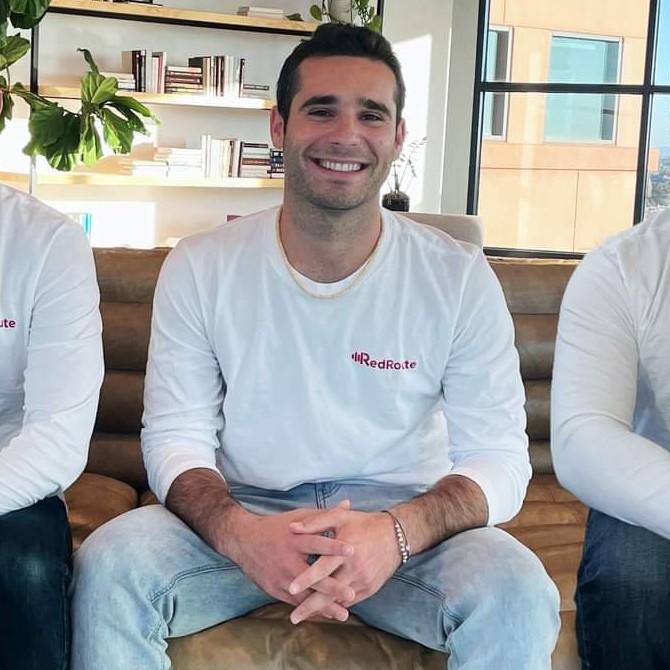
Brian Schiff
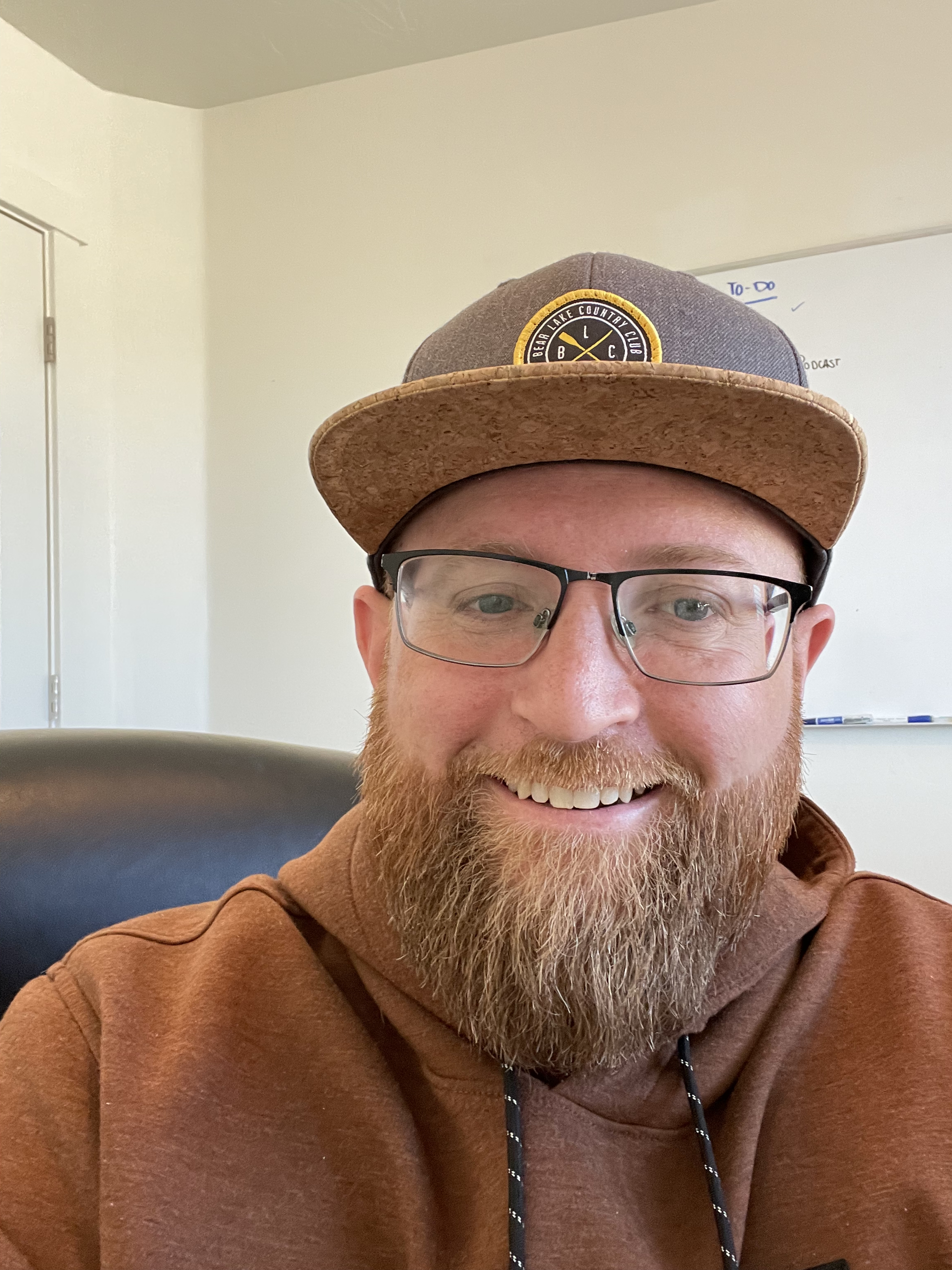
James Gilbert
Today's Guests
